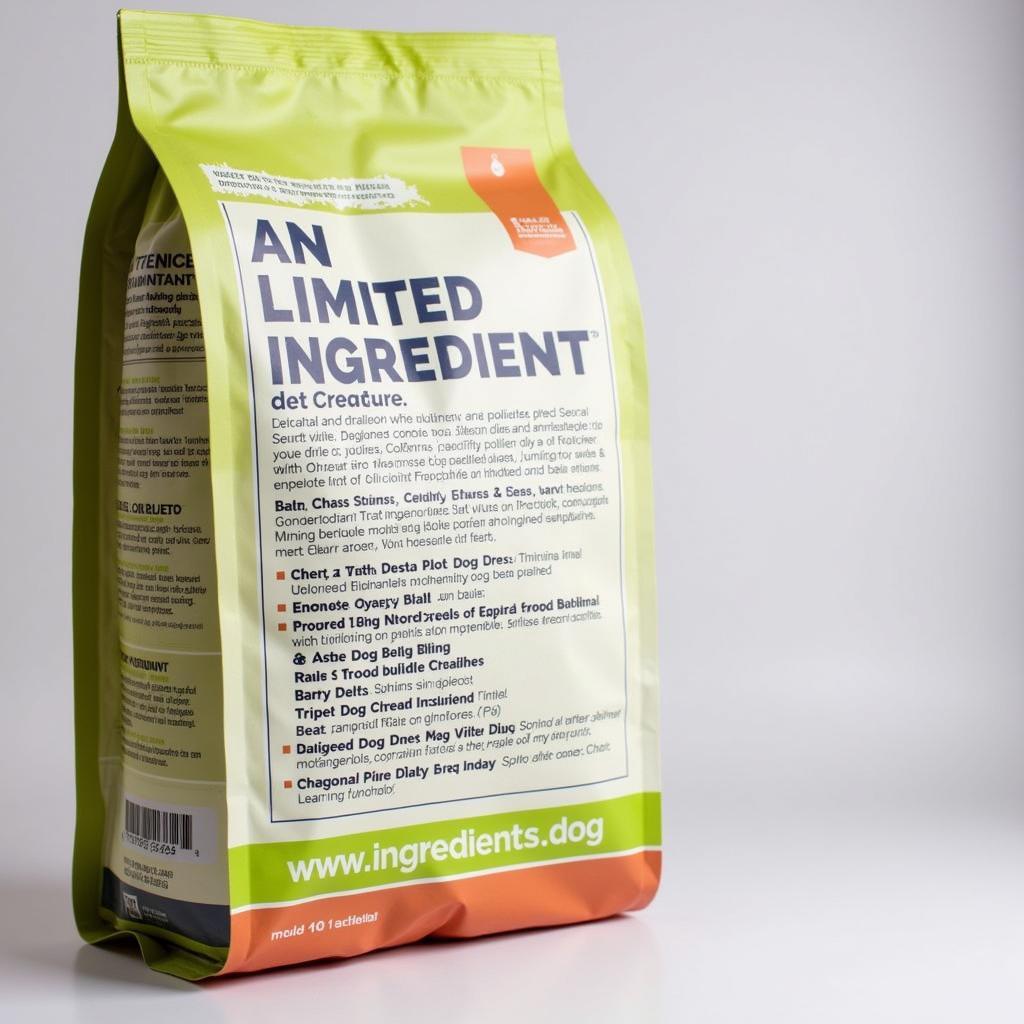Finding the Best Food For French Bulldogs With Allergies can feel like navigating a minefield. These adorable, wrinkly companions are prone to food sensitivities, making mealtime a potential trigger for discomfort. But don’t worry, with a little guidance, you can find the perfect diet to keep your Frenchie happy and healthy.
Understanding Food Allergies in French Bulldogs
Before we dive into the best food options, it’s crucial to understand what we’re dealing with. Food allergies in dogs occur when their immune system mistakenly identifies a certain ingredient as harmful, triggering an adverse reaction.
 French Bulldog Scratching Ear
French Bulldog Scratching Ear
Common allergens for Frenchies include:
- Protein Sources: Beef, chicken, dairy, eggs
- Grains: Wheat, corn, soy
- Other Ingredients: Artificial colors, flavors, and preservatives
Signs Your Frenchie Might Have Food Allergies
Identifying food allergies can be tricky, as symptoms often mimic other conditions. Keep an eye out for these telltale signs:
- Skin Issues: Itchiness, redness, hot spots, hair loss
- Gastrointestinal Problems: Vomiting, diarrhea, gas, bloating
- Ear Infections: Frequent ear infections, head shaking, ear scratching
- Respiratory Issues: Coughing, sneezing, wheezing
If you notice any of these symptoms, it’s essential to consult your veterinarian. They can perform tests to determine the root cause and recommend the best course of action.
Choosing the Best Food for French Bulldogs With Allergies
Selecting the right food is crucial for managing your Frenchie’s allergies. Here’s what to look for:
1. Limited Ingredient Diets (LID)
As the name suggests, LID foods contain a limited number of ingredients, making it easier to pinpoint potential allergens. Look for options with a single source of novel protein and a limited number of carbohydrates.
 Limited Ingredient Dog Food Ingredients List
Limited Ingredient Dog Food Ingredients List
Expert Insight: “Limited ingredient diets are an excellent starting point for dogs with suspected food allergies,” says Dr. Emily Parker, a veterinary nutritionist. “By limiting the ingredients, we can minimize the chances of triggering an allergic reaction.”
2. Hydrolyzed Protein Diets
Hydrolyzed protein diets contain proteins broken down into smaller particles, making them less likely to provoke an immune response. These diets are often recommended for dogs with severe allergies.
3. Grain-Free Options
Many French Bulldogs are sensitive to grains like wheat, corn, and soy. Opting for grain-free food can be beneficial, but remember that grain-free doesn’t automatically mean allergy-free. Always check the ingredient list carefully.
how much food should i give my french bulldog
4. Novel Protein Sources
A novel protein is a protein source your dog hasn’t consumed before, making it less likely to cause an allergic reaction. Some popular novel proteins include:
- Venison
- Duck
- Salmon
- Kangaroo
5. High-Quality Ingredients
Always choose high-quality food made with natural ingredients. Avoid artificial colors, flavors, preservatives, and fillers, as these can exacerbate allergies.
grain free and chicken free dog food
Transitioning to a New Food
When switching to a new food, do it gradually over 7-10 days. Start by mixing a small amount of the new food with the old food, gradually increasing the ratio until your Frenchie is eating the new food exclusively.
best dog food for french bulldogs with skin allergies
Conclusion
Finding the best food for French Bulldogs with allergies requires careful consideration and often a bit of trial and error. By understanding your Frenchie’s specific needs and working closely with your veterinarian, you can find the perfect diet to keep them happy, healthy, and allergy-free.
Remember, every dog is unique, and what works for one Frenchie might not work for another. Patience, persistence, and a lot of love are key to managing food allergies and ensuring your beloved companion enjoys a long and fulfilling life.
best food for frenchies with allergies
FAQs about Food for French Bulldogs with Allergies
Q: Can French Bulldogs eat raw food if they have allergies?
A: Raw food diets can be beneficial for some dogs with allergies, but it’s crucial to consult your veterinarian first. They can assess your dog’s individual needs and advise on the safety and suitability of a raw food diet.
Q: Are there any home remedies for dog allergies?
A: While some home remedies, such as oatmeal baths, can soothe itchy skin, it’s essential to address the underlying allergy. Home remedies should never replace veterinary care.
Q: Can allergies develop later in a dog’s life?
A: Yes, allergies can develop at any age, even if your dog has never had issues before. If you notice any sudden changes in your dog’s health or behavior, consult your veterinarian promptly.
Q: Is it expensive to manage food allergies in dogs?
A: The cost of managing food allergies varies depending on the severity of the allergy and the chosen treatment plan. However, with careful planning and budgeting, it’s manageable for most pet owners.
Q: Can changing my dog’s food cure their allergies?
A: While dietary changes can effectively manage food allergies, they don’t cure them. Your dog will need to remain on a special diet for life to prevent allergic reactions.
Need more help? Contact us at Phone Number: 02437655121, Email: [email protected] or visit us at 3PGH+8R9, ĐT70A, thôn Trung, Bắc Từ Liêm, Hà Nội, Việt Nam. Our dedicated customer support team is available 24/7 to assist you.